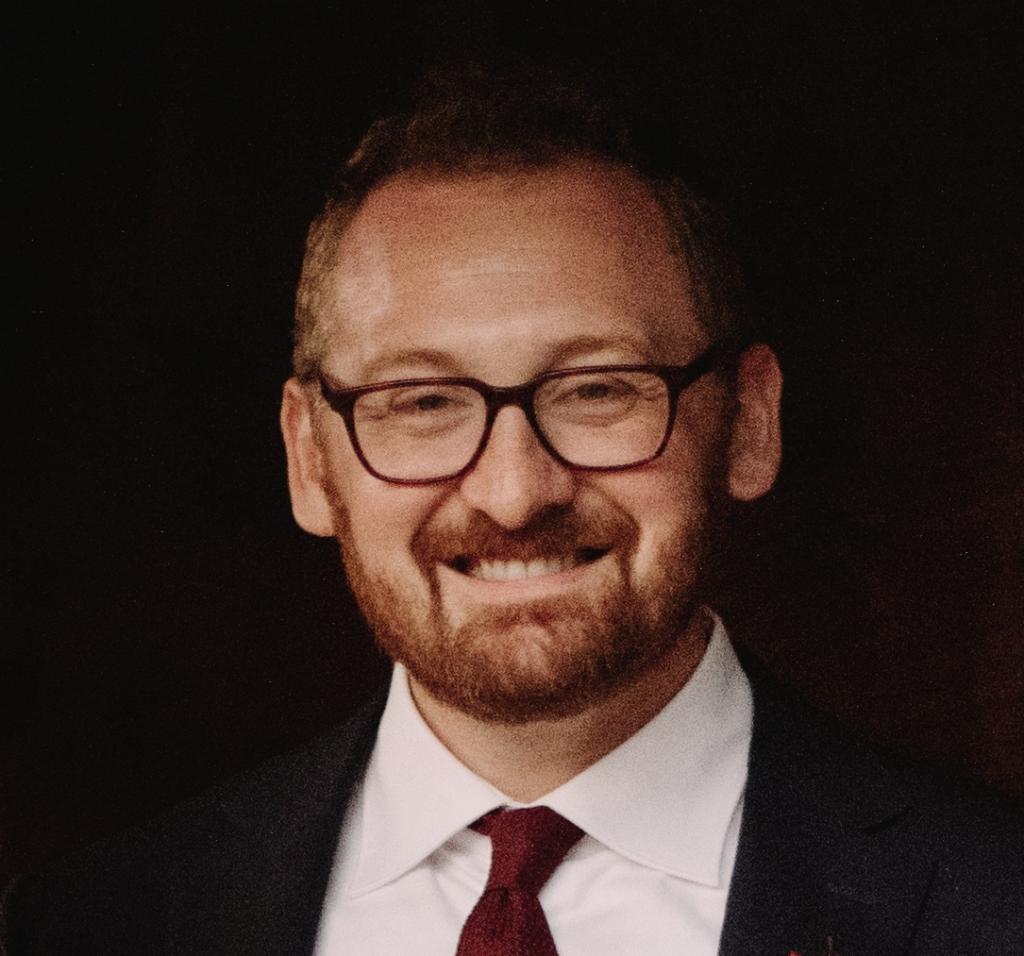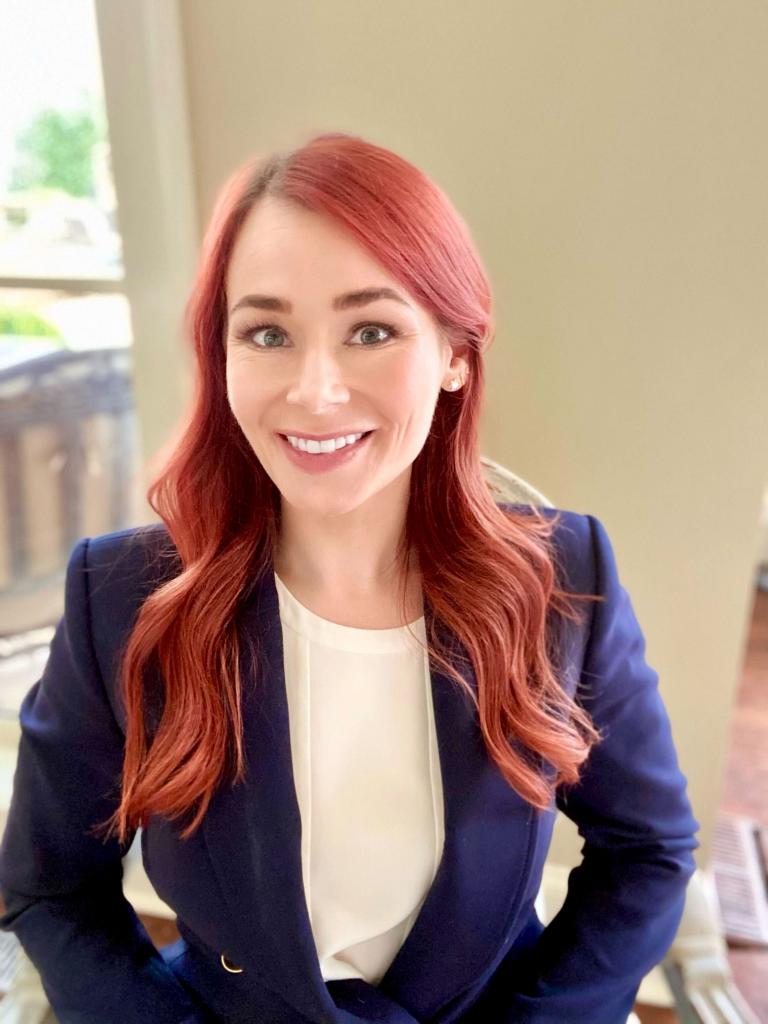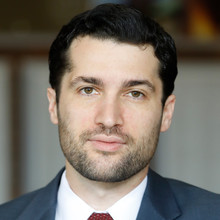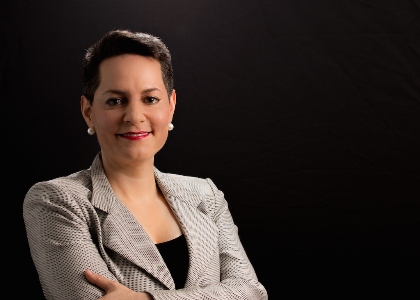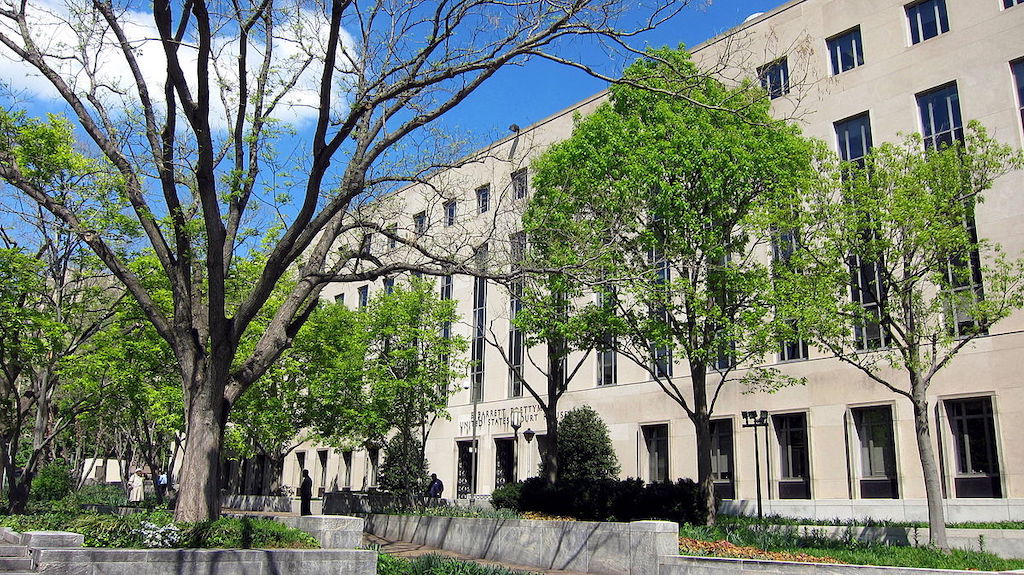Trump Jan. 6 Indictment: The Statutes
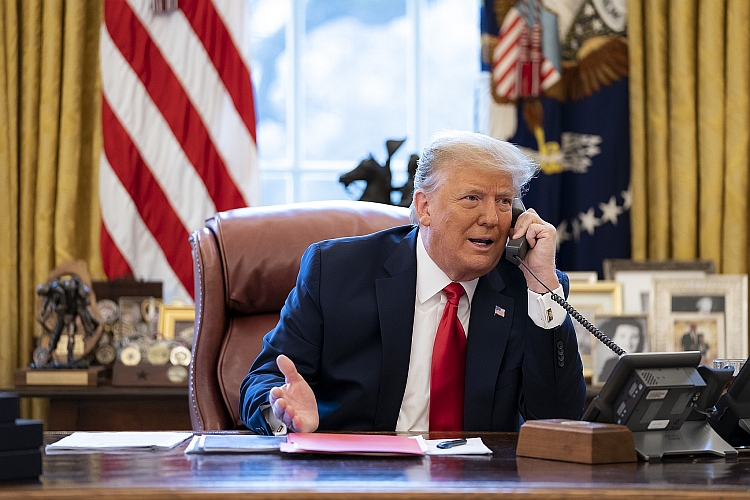
Published by The Lawfare Institute
in Cooperation With

The indictment released today by the Jan. 6 grand jury in Washington, D.C., charges former President Donald J. Trump with four felony counts: two for obstruction of an official proceeding, one for conspiracy to defraud the United States, and one for conspiracy against rights. These are among the more straightforward crimes the special counsel could have charged; they are commonly used by prosecutors in a variety of contexts, and they avoid some of the legal pitfalls that would have attended charges like seditious conspiracy or incitement. The indictment tightly hews to the elements of the statutes, though the factual allegations are offered in support of all four crimes.
We examine the facts as set forth in the indictment in a separate article. And we provide an analysis and some commentary in another article. Here, we take a close look at the statutes at the heart of the indictment.
18 U.S.C. §§ 1512(c)(2) and 1512(k)
Among the charges Trump faces, 18 U.S.C. § 1512(c)(2), or corruptly obstructing an official proceeding, will sound the most familiar to readers of this publication. The Lawfare team has covered the statute extensively in the context of Jan. 6 insurrectionists. The statute was passed in the aftermath of the Enron accounting scandal when corporate executives shredded incriminating documents to hide critical evidence of financial wrongdoing from investigators. Congress passed §1512(c) to criminalize the obstruction of evidence or the tampering of witnesses that would otherwise be relevant in an investigation.
Despite its origins, § 1512(c)(2) has been deployed against at least 308 of the nearly 1,000 rioters charged with federal crimes stemming from Jan. 6, with 70 already having been convicted under the statute. With the exception of seditious conspiracy, §1512(c)(2) has been the stiffest charge prosecutors have leveled against the insurrectionists; it carries a maximum penalty of 20 years. The charge is now leveled against the insurrection’s ringleader.
The full text of 18 U.S.C. § 1512(c) reads as follows:
(c) Whoever corruptly—
(1) alters, destroys, mutilates, or conceals a record, document, or other object, or attempts to do so, with intent to impair the object’s integrity or availability for use in an official proceeding; or
(2) otherwise obstructs, influences, or impedes any official proceeding, or attempts to do so, shall be fined under this title or imprisoned not more than 20 years, or both. (emphasis added)
The indictment is peppered with alleged acts that rise to the level of obstructing, influencing, or impeding Congress’s certification of the Electoral College’s votes, including cajoling state leaders to change electoral votes in favor of Trump, independently organizing fraudulent electors, leveraging the Justice Department to try to replace legitimate electors with Trump’s electors, urging Pence to alter the election results, and, perhaps most importantly, inducing a mob to charge on the Capitol during the certification process.
This statute presents some interpretive questions, however. Two areas of the statute have been under particular scrutiny in courts: first, the word “otherwise” at the beginning of subsection (c)(2), and second, the mens rea requirement of “corruptly.” The U.S. Court of Appeals for the D.C. Circuit addressed both issues earlier this year in the Jan. 6 case of United States v. Fischer. Their analysis sheds light on the hurdles the prosecutors will have to clear to prove this charge against Trump.
As to the definition of “otherwise,” the D.C. Circuit held that it covers other obstructive behaviors “that might not constitute a more specific offense involving documents, records, or objects under § 1512(c)(1).” In other words, “otherwise” signals that § 1512(c) criminalizes obstructive behavior beyond that which is specified in subsection (1). Under this reading, Trump’s actions on Jan. 6 would breach § 1512(c) so long as his actions “obstruct[ed], influence[d], or impede[d] any official proceeding.”
A separate provision of the law (18 U.S.C. §1515(a)(1)(B)) defines “official proceeding” to include a “proceeding before the Congress,” and district courts have unanimously agreed that this language appears to encompass the Jan. 6 joint session.
But whether this definition of “otherwise” prevails in and ultimately governs the Trump case has yet to be determined. A co-defendant in the Fischer case has petitioned the Supreme Court for certiorari, arguing that the earlier-mentioned definition of “otherwise” is too broad. So the precise definition of “otherwise” may still be at play.
One interpretation of “otherwise” could be to read it in context with subsection (c)(1), the document destruction paragraph; this would require showing that Trump took some action to “obstruct[], influence[], or impede[] any official proceeding” with respect to “a record, document, or some other object.” This was the interpretation U.S. District Judge Carl J. Nichols favored, but the D.C. Circuit ultimately overturned his reading in the Fischer case. Nichols’s ruling was a bit of an outlier. Of the many trial judges in D.C. who have presided over Jan. 6 prosecutions, he was the only one to read “otherwise” that narrowly.
Another interpretation would be to interpret subsection (c)(2) somewhat broadly but to limit its breadth by having some degree of similarity between the president’s alleged conduct and the listed examples in (c)(1). In other words, Trump’s obstruction of justice would cover only those acts that affected the integrity or availability of evidence, even if they did not directly affect “a record, document, or some other object.” This latter approach was supported by the third D.C. Circuit judge in the Fischer case.
With regard to the mental state requirement of “corruptly,” the Fischer court did not reach a decision, but the issue is likely to return—especially if the Supreme Court takes a look at the statute because of the “otherwise” issue. The Supreme Court has been suspicious of broad readings of similar white-collar statutes. One interpretation could be to define “corruptly” to mean “wrongful, immoral, depraved, or evil” conduct. Another could be to define “corruptly” as having a “corrupt purpose,” or an act carried out through “independently corrupt means,” or both. A final interpretation could be to define “corruptly” as the “intent to procure an unlawful benefit that one knows is unlawful either for oneself or for some other person.”
The indictment has many allegations that Trump knew he lost the election but acted with the purpose to overthrow the election through corrupt and unlawful means. These facts certainly meet the threshold mental state requirement of the first two understandings of “corruptly.”
The third definition of “corruptly” is more demanding, but even here, there are a plethora of alleged facts that Trump used unlawful means with an intent to procure the unlawful benefit of winning the presidency for himself.
All in all, the “otherwise” issue seems to pose a more serious threat to the use of this statute than does the mens rea requirement, since the special counsel seems prepared to prove that Trump’s intent was corrupt by nearly any understanding of the term.
Finally, related to the § 1512(c)(2) charge, Trump is also charged under § 1512(k), which is the conspiracy charge in connection with obstructing an official proceeding.
18 U.S.C. § 371
Trump is also charged under 18 U.S.C. § 371, which makes it unlawful for two or more people to “conspire either to commit any offense against the United States, or to defraud the United States, or any agency thereof in any manner or for any purpose.” As we have explained elsewhere in the context of the Mueller investigation, the government will have to prove (a) that Trump made an agreement with at least one other person (b) to defraud the United States (c) with criminal intent and (d) that he took action in furtherance of the conspiracy (an overt act).
Unlike conspiracy to commit an offense under other statutes, conspiracy to defraud the United States need not be tied to a specific underlying crime. In other words, the special counsel will not need to prove that Trump committed a predicate crime; it is sufficient to prove that he defrauded the United States. As the Ninth Circuit has put it, “[n]either the conspiracy’s goal nor the means used to achieve it need to be independently illegal.” But the statute itself does not define the term “defraud.” So how will the government prove § 371?
The Supreme Court’s early case law interpreted the term “defraud” broadly, defining it as “any conspiracy for the purpose of impairing, obstructing, or defeating the lawful function of any department of government.” The Court later modestly narrowed the definition in Hammerschmidt v. United States (1924), writing that a § 371 conspiracy to defraud the U.S. makes it unlawful “to interfere with or obstruct one of its lawful governmental functions by deceit, craft, or trickery, or at least by means that are dishonest.” Similarly, in United States v. Haldeman (1976), the D.C. Circuit upheld a verdict based on a jury instruction to define “defrauding the United States” as “depriv[ing] the Government of its right to have the officials of its departments and agencies transact their official business honestly and impartially, free from corruption, fraud, improper and undue influence, dishonesty and obstruction.”
The special counsel alleges plenty of facts in support of each element of the crime. According to the indictment, Trump reached agreements with at least six unnamed co-conspirators. With regard to the second element, the government then offers numerous examples of alleged “dishonesty, fraud, and deceit to impair, obstruct, and defeat the lawful federal government function by which the results of the presidential election are collected, counted, and certified by the federal government.” These include allegations that Trump made false statements and repeated those statements after being informed of their falsity, that he organized fraudulent slates of electors, that he insisted that the Justice Department conduct baseless investigations of election fraud, and that he tried to enlist Pence to use his position as president of the Senate to subvert the election results. Most remarkably, the indictment also alleges that Trump deceived his supporters into believing that Pence could alter the results of the election and then exploited the crowd’s violence on Jan. 6.
Many of these same alleged facts support the third element, criminal intent. And the indictment methodically documents many alleged examples in support of the fourth element, an overt act, including by recounting in detail phone calls, meetings, public statements, and documentary evidence.
From a legal perspective, the § 371 charge is not particularly complicated given the breadth of the statute and how commonly it’s used. Nonetheless, it’s worth pausing to note that there is plenty of precedent relevant to facts underlying Trump’s charges. In United States v. Mosley (1915), the Supreme Court upheld convictions under § 371’s precursor statute of election officials who had conspired to “injure and oppress” legally qualified electors from voting for a member of Congress, specifically by omitting their votes from the count. In United States v. Hopkins, the Fifth Circuit upheld convictions under § 371 for violations of election laws, notwithstanding the fact that the government had failed to prove that the defendants had specific knowledge of the statutory provisions they conspired to frustrate. And Special Counsel Robert Mueller indicted 13 Russian nationals for conspiring to defraud the United States based on the actions they took to interfere with the 2016 presidential election.
This is well-trodden ground for federal prosecutors, though applying it to a former president for conduct as president in an electoral context is obviously novel.
18 U.S.C. § 241
Perhaps the most surprising charge in the indictment is under 18 U.S.C. § 241, which makes it a criminal offense for “two or more persons [to] conspire to injure, oppress, threaten, or intimidate any person … in the free exercise or enjoyment of any right or privilege secured to him by the Constitution or laws of the United States[.]”
While flagged by a few early commentators, most assessments of possible charges against Trump relating to Jan. 6 and the 2020 election omitted possible § 241 charges. Early reports of the charges identified in the target letter Trump received earlier this month similarly pointed to a related provision, 18 U.S.C. § 242, in lieu of § 241. Hence, the revelation that § 241 charges are part of the indictment came as something of a surprise. Yet the history of the statute—and how it has long been used by the Justice Department—suggests that it is well suited to address the conduct alleged in the indictment relating to efforts to turn the 2020 election results in Trump’s favor. Indeed, this too has tried-and-true applications in contexts not too distant from this one.
Section 241 was originally enacted as part of the Enforcement Act of 1870 to allow for the federal prosecution of the Ku Klux Klan and others trying to prevent Black Americans from exercising their civil rights through intimidation and violence. Other provisions that dealt more specifically with election interference were later repealed. But § 241 has been used in their stead to prosecute a range of election interference schemes, including those aimed at preventing individuals from casting votes as well as those seeking to deprive cast votes of their lawful effect. In other words, the “right to vote, and to have one’s vote counted” at issue is the public’s right.
The Supreme Court signed off on this voter protection use of § 241 in the context of elections in United States v. Mosley (1915) and has since repeatedly upheld its application to various steps in the electoral process. For example, in United States v. Classic, the Court upheld the prosecution of individuals who changed ballots to their preferred candidate in a congressional primary, stating “[c]onspiracy to prevent the official count of a citizen’s ballot … is equally a conspiracy to injure and oppress the citizen when the ballots are cast in a primary election prerequisite to the choice of party candidates for a congressional election.” Similarly, in United States v. Saylor (1944), the Court concluded that § 241 protects “not only [the right] to cast [a] ballot but that to have it honestly counted” and on that logic upheld the prosecution of individuals who stuffed ballot boxes with fraudulent ballots in favor of their preferred candidate in a U.S. Senate election. As Quinta Jurecic recently wrote for Lawfare, one of the most notable recent actions under § 241 was the successful prosecution of Douglass Mackey earlier this year for having circulated disinformation on social media encouraging Democrats to “vote from home” using fraudulent means in the lead-up to the 2016 general election.
All in all, Smith’s approach to charging this case appears conservative. Two of the statutes he is applying, § 371 and § 241, are well understood terrain, and they will raise few significant legal—as opposed to factual—questions. Another, § 1512, has some genuinely open questions surrounding it, and it’s easy to imagine the Supreme Court limiting the availability of the statute—or even blocking it. That said, Smith’s approach is consistent with the tack the government is taking in literally hundreds of other Jan. 6 cases. If the § 1512(c)(2) charge against Trump fails as a matter of law, he will be one of more than 300 Jan. 6 defendants to have one fewer felonies as a result.

